John Hurrell – 13 March, 2020
When I first saw van Hout's exhibition title I thought it might have been a cheeky joke about Nick Cave's recent album 'Ghosteen', some music (dealing with loss) I've been playing a lot recently. On reflection, the television/video trace phenomena as a trope works much better interpretatively. In the title work, 'ghosting' as a metaphor for bodily deterioration due to the excesses of cigarettes or alcohol is feasible: a shell where a body's life sustaining processes have been leeched away because of disease.
Three works feature in the new Ronnie van Hout show at Ivan Anthony, someone who hasn’t shown in Auckland for a while. There is the exhibition’s eponymous installation of four bull-necked ‘zombies’ in a kind of railed-off dock. These lugubrious figures seem to be trying to recover from the physical excesses of smoking and drinking—posing like a rock band, yet dry-retching or imperiously contemplating—each one featuring van Hout‘s glowering head transplanted onto thinner, garishly painted bodies—occasionally female.
There is also Ghosting (The Garden), a video of the artist dancing around an overgrown garden in front of an old house, and suddenly finding himself as a cowering US soldier in a war movie like The Longest Day—who straight-facedly recites parts of an obscure (almost inaudible) rhetorical text by Stijl founder, Theo van Doesburg.
And there is also another Ghosting video: van Hout’s tribute to John Hughes‘ eighties movie The Breakfast Club, where he is playing the roles of articulate smart-arse teenagers in school detention-five prototypes spouting texts from the script.
The term ‘ghosting’ refers to the callous severing of a relationship through disappearance without warning—and no ensuing communication. This word for emotionless steely-heartedness appears to have in its origins those moving bodies on television screens that leave faint outlining traces in the wake of solid human forms.
With van Hout’s project he seems to be referring to the type of abstraction he is perpetuating in his version of The Breakfast Club, withdrawing the narrative context and physical properties of the elucidating speakers to leave isolated texts on their own, but spoken by a van Hout head. However the spoken delivery is not dry. Even though its context is subtracted, it has inflections and expressive nuance. Yet, between those who know The Breakfast Club film, and those who don’t, there is a huge difference.
Hughes’ prototypes consist of: ‘The Rebel’, John Bender, played originally by Judd Nelson (now Ronnie with a purple backdrop); ‘The Nerd’, Brian Johnson, played by Anthony Michael Hall (Ronnie with a pale orange backdrop); ‘The Spoilt Princess’, Claire Standish, played by Molly Ringwald (now Ronnie with a green backdrop); ‘The Sports Jock’, Andrew Clark, played by Emilio Estevez (Ronnie with a bright red backdrop); and ‘The Flakey Loner’, Allison Reynolds, played by Ally Sheedy (now Ronnie with a grey-blue backdrop).
However, without experienced knowledge of the 1985 film, van Hout’s video becomes pure text that is hard to ascribe purpose to; butted together fragments of different voices found together in a script and showcased. Paradoxically it can even be seen as serious theoretical discourse—albeit a sort of collaged set of appropriations. The artist obviously enjoys acting and his pleasure at playing surly or petulant roles is part of the interest too.
When I first saw van Hout’s exhibition title I thought it might have been a cheeky joke about Nick Cave’s recent album Ghosteen, some music (dealing with loss) I’ve been playing a lot recently. On reflection, the television/video trace phenomena as a trope works much better interpretatively. In the title work, ghosting as a metaphor for bodily deterioration due to the excesses of cigarettes or alcohol is feasible: a shell where a body’s life sustaining processes have been leeched away because of disease.
And in The Garden, with the mumbled recital by Ronnie the Soldier, van Doesburg‘s text The Other Face to Be (from a 1926 novel) alludes to transition or becoming, the transmutation of the self, the abandonment of early phases, the conflict between old and new identities.
A nice spatially knitted together trio of thematically interconnected works.
John Hurrell
Recent Comments
John Hurrell
Here's some nice writing on Ronnie's show from Lance Pearce: https://www.circuit.org.nz/blog/on-the-verge-ronnie-van-hout%E2%80%99s-ghosting-ivan-anthony-4-march-4-april-2020
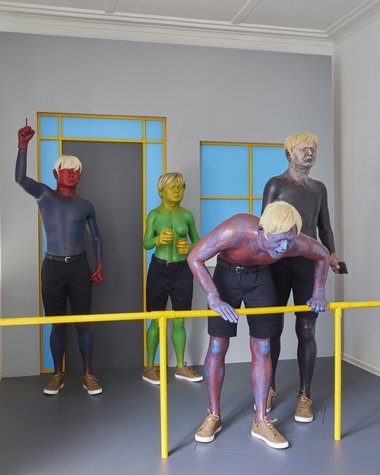

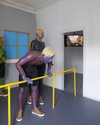
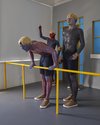

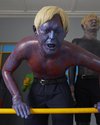

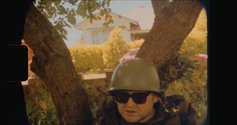
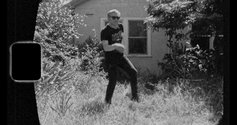
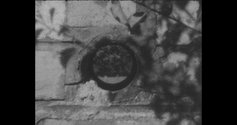
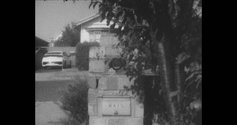
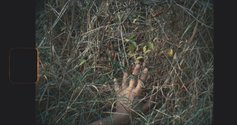

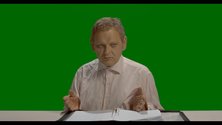
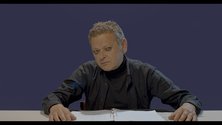
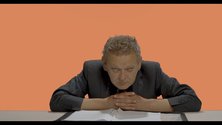
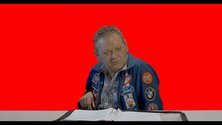
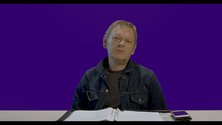
 Advertising in this column
Advertising in this column Two Rooms presents a program of residencies and projects
Two Rooms presents a program of residencies and projects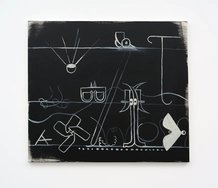
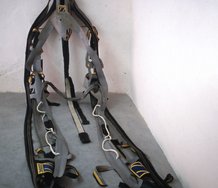
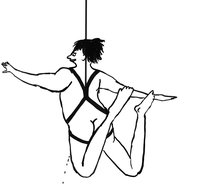
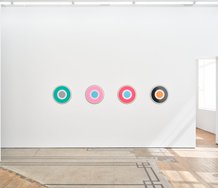
This Discussion has 1 comment.
Comment
John Hurrell, 8:23 a.m. 21 June, 2020 #
Here's some nice writing on Ronnie's show from Lance Pearce:
https://www.circuit.org.nz/blog/on-the-verge-ronnie-van-hout%E2%80%99s-ghosting-ivan-anthony-4-march-4-april-2020
Participate
Register to Participate.
Sign in
Sign in to an existing account.